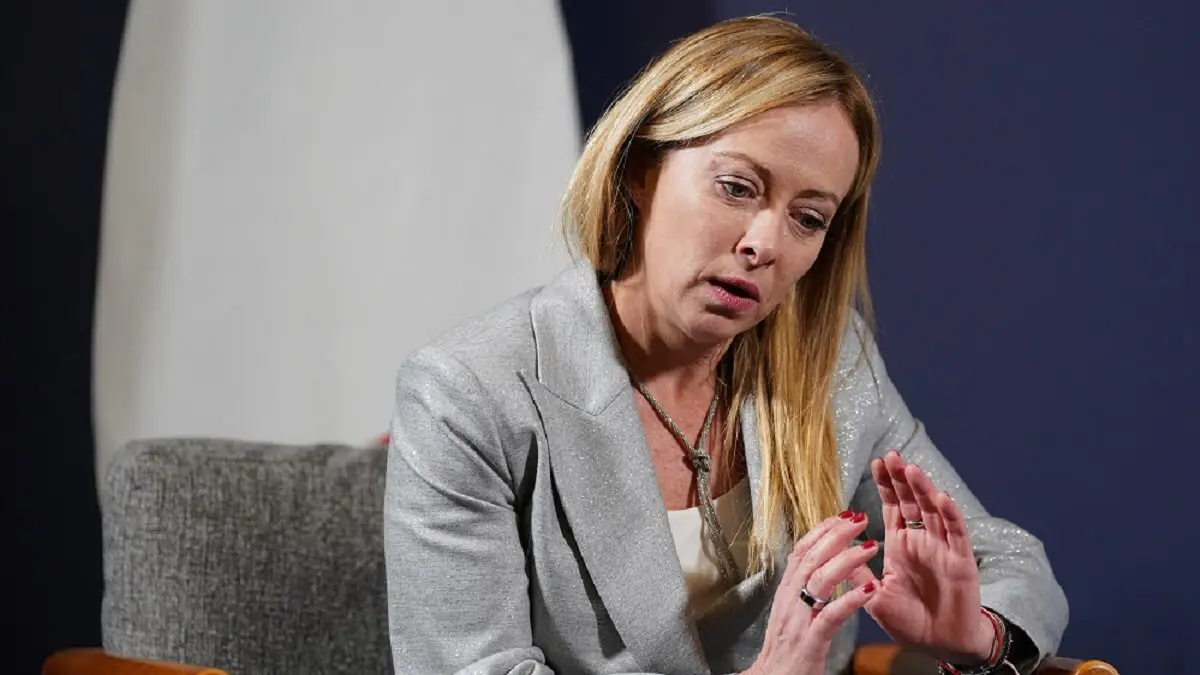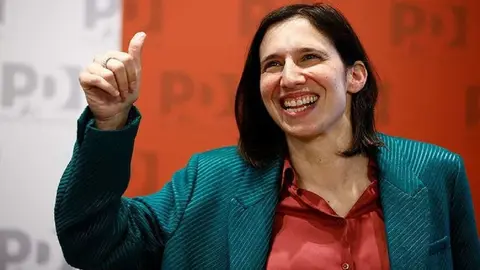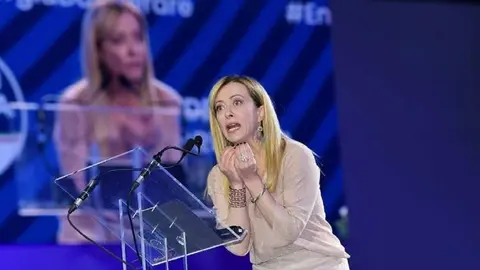Meloni, Salvini and the change of electoral cycle

With the last general elections having been held almost a year and a half ago, and with the European elections as the most important elections to be held in 2024, the time has come to renew the governments of several regions and even some city councils, although the most important one at stake at the moment, Florence, is now just a small city of just over 200,000 inhabitants. It does, however, have a very illustrious former mayor, Matteo Renzi, who ruled the city between 2009 and 2014, when he became president of the Council of Ministers.
Renzi had his favourable electoral cycle between 2014 and 2018, when his then Democratic Party (PD) came to control 18 of the 20 regions that make up the current Italian Republic. But after the general elections of March 2018, in which the PD experienced a real debacle, the winning cycle began for Luigi Di Maio's Five Star Movement and Matteo Salvini's League, which ended up forming the first Executive of the 18th Legislature (June 2018-August 2019).
Time would show that, although Salvini and Di Maio held the same rank (both were Deputy Prime Ministers), the former was much more experienced in high politics than the latter. Thirteen years older than Di Maio, Salvini not only belonged to what is now the country's oldest party (the League was founded by Umberto Bossi in 1987), but, having been involved in politics since 1993 (he started as a councillor in the capital of Lombardy), Salvini knew much better how to handle himself in public activity than his rival Di Maio, who at the time of becoming Deputy Prime Minister had only known parliamentary life. Salvini, who by that time already knew what it was like to be a councillor, MP, MEP and from March 2018 a senator, had the cunning to take over the interior portfolio at a time of massive arrivals of irregular immigrants. By applying a policy of 'zero tolerance', and systematically refusing to allow any boat with such immigrants to touch transalpine soil, he gained enormous popularity that led to one in three Italians voting for him in the European elections in May 2019.
Meanwhile, Di Maio and his party were sinking in voting intentions because the implementation of his "star" measure (the controversial "citizenship income") required a much longer period to become effective and, moreover, as it directly affected public spending, it was opposed by the European Commission, presided at the time by Luxembourg's Jean-Claude Juncker. As is well known, Salvini ended up bringing down the government that he himself had helped to create only a year after its inception, but the skill of President Mattarella, plus the personal expediency of Matteo Renzi and the PD's "old guard", left Salvini's attempt at early elections in "water under the bridge".
Even so, the Lombard politician's popularity would remain intact for some time, although the year 2020 would paint a different picture: in January of that year the centre-right won Calabria, but could not win Emilia-Romagna; and in the elections called for September of that year, with up to seven regions in contention, the centre-right only managed to win in four. In fact, Salvini's popularity would begin to plummet in January 2022, when, with the centre-right having a clear chance of winning a successor to the outgoing President of the Republic (Sergio Mattarella), the deadlock between political forces led to the Sicilian jurist and politician having to accept a second term (in which he remains at the moment) and the League having to "swallow" voting for a Christian Democrat, when Christian Democracy (DC) had historically been the main target of criticism since Umberto Bossi entered politics in the mid-1980s. All of this would leave Salvini very much affected, and from then on he would gradually see how the person who had been the coalition's "ugly duckling" until then (the Roman Meloni) began to take away his voting intentions, to the point that in September 2022 she would win three times as many votes as her coalition partner Salvini.
Logically, President Mattarella put Meloni in charge of forming a government, and on 22 October 2022 she became the 33rd (the first woman) President of the Council of Ministers, with Salvini repeating as Deputy Prime Minister, but this time not controlling the Interior (now in the hands of Matteo Piantedosi, a man with a lot of experience in the "Viminale", the headquarters of this ministry), but rather Infrastructure. In addition, the Senate presidency was taken over by a veteran of Meloni's confidence (Ignazio La Russa), although Salvini did manage to place Lorenzo Fontana as President of the lower house.
Throughout 2023 there were elections to renew the government of two regions, both of the utmost importance. On 13 February the names of the President of Lombardy and Lazio were known. Here again there was no problem of power-sharing. In Lombardy, the "legista" Attilio Fontana was already at the head of the region, who, despite receiving a lot of criticism for his management during the "coronavirus" period, was able to revalidate his mandate, although it was striking how much the Meloni party's vote grew to the detriment of Salvini's. In Lazio, on the other hand, the "legista" Attilio Fontana was elected President of Lazio. Meanwhile, in Lazio, which had long been governed by the PD (the governor had been the failed Secretary General Nicola Zingaretti, who only lasted two years at the head of the main centre-left party), the candidacy of Boccia, a man from Meloni's party, who had everything to gain since his party, Brothers of Italy, has its founding nucleus in Rome (Meloni herself tried unsuccessfully to become mayor of the "eternal city" in June 2016), prevailed.
The problem for Salvini is that, almost a year and a half after Meloni tripled his number of votes in the last general elections (September 2022), the Roman 'premier' has not only not lost voting intentions, but is currently moving between 29 and 30% (when in the general elections a year and a half ago 26% of the electorate voted for him) of support. And elections are again being held to renew the government of three regions: Abruzzo, Basilicata and Sardinia. Three southern regions where Salvini literally swept the board five years ago but where there is now a clear shift of votes towards Meloni's party, without forgetting the municipal elections to be held in May-June, in which the same electoral shift may take place.
Although Salvini has his sights set on the European elections, knowing that unrest is still rife in some EU countries (the victory of the anti-European Wilders in the Netherlands is the clearest example, while the Social Democrats are sinking in Germany, Macron has had no choice but to change his government given that he is at the peak of his unpopularity, and in Italy the three main pro-European forces (Forza Italia, Italia Viva and Azione) do not even have 15% of voting intentions between them), he is facing the possibility of losing a substantial part of his territorial power. At the moment, the Roman Meloni is by far the most popular politician, despite the fact that in 2023 she obtained a low level of growth and that it is expected to be even lower in the year that has just begun, in a country where inequalities are growing more and more and where the future is not particularly hopeful given the ageing of the population and the marked "demographic winter", with the birth rate already below 400,000 births per year for the first time, compared to the average of 1,100,000 in the 1970s.
The reality is that the change in the electoral cycle is clear. The centre-right has been ahead of the centre-left for almost a decade, but now voters are leaning not towards Salvini, but towards Meloni. But Meloni has to tread carefully, because his "maggioranza" is only real with the votes of his coalition partner Salvini. The time has come to choose the candidate for Sardinia, and the stakes are high: who would have thought five years ago that the current deputy prime minister would find himself in such a situation?
Pablo Martín de Santa Olalla Saludes is Professor in the Faculty of Communication and Humanities at the Camilo José Cela University (UCJC) and author of the book Italia, 2018-2023. De la esperanza a la desafección (Líber Factory, 2023).



